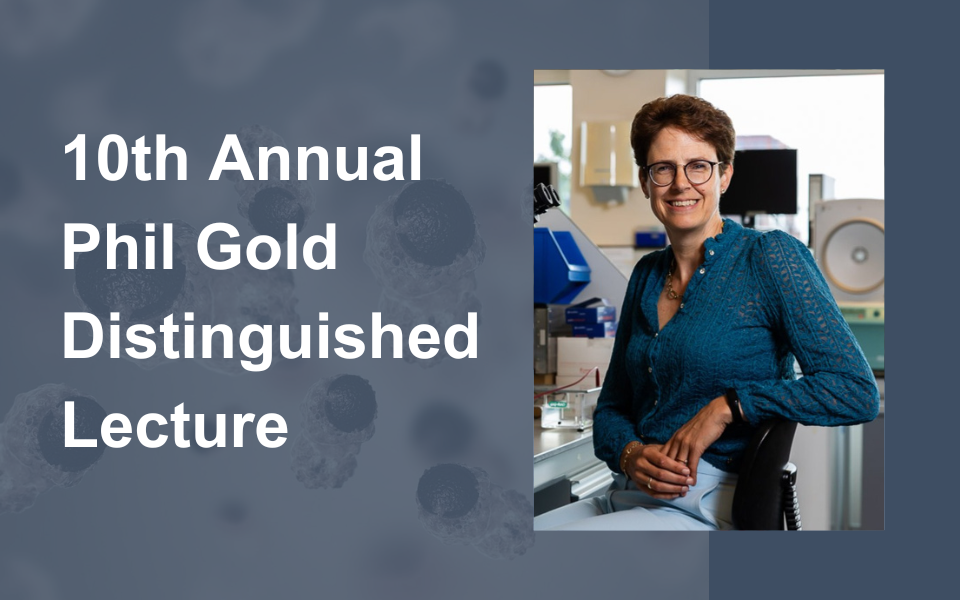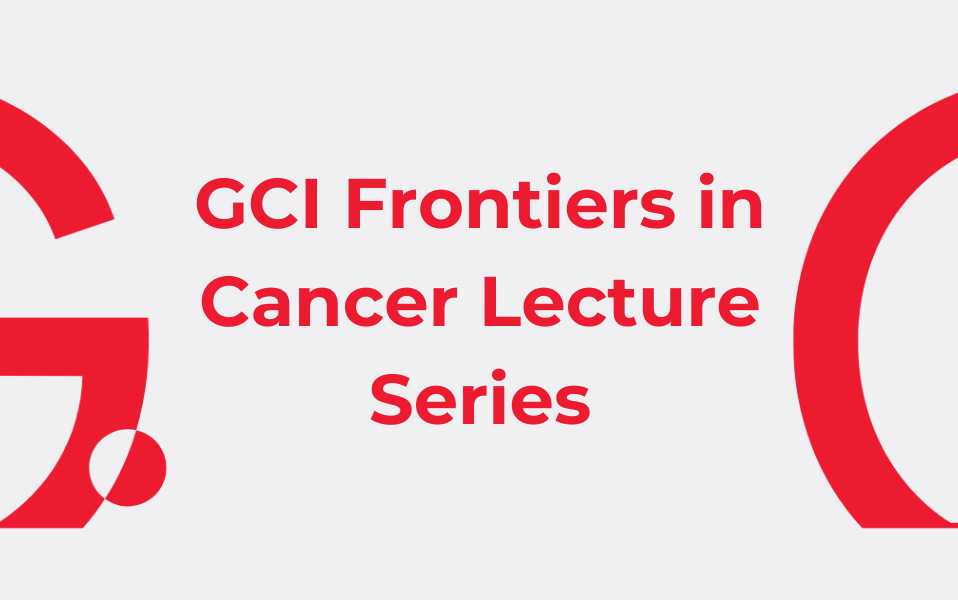

2026 Phil Gold Distinguished Lecture
Mar 19, 2026
From 4 PM to 5 PM
QC
Canada
This lecture is hosted in collaboration with The Emerging Topics of Health Seminar series (EToH)
.

GCI Frontiers in Cancer Research Lecture Series
Mar 25, 2026
From 11 AM to 12 PM
Rosalind and Morris Goodman Cancer Institute
Montreal, QC
Canada
Rosalind and Morris Goodman Cancer Institute
"The MYC oncoprotein in liver metastatic, therapy resistant pancreatic ductal adenocarcinoma" will be presented by Rosalie C. Sears, PhD., Krista L. Lake Chair in Cancer Research and Professor of Molecular and Medical Genetics Co-Director, Brenden-Colson Center for Pancreatic Care.

GCI Frontiers in Cancer Research Lecture Series
Apr 15, 2026
From 11 AM to 12 PM
Rosalind and Morris Goodman Cancer Institute
Montreal, QC
Canada
Rosalind and Morris Goodman Cancer Institute
"Human Organ Chips for Disease Modeling, Drug Development, and Personalized Medicine" will be presented by Donald E. Ingber, MD, PhD, Founding Director of the Wyss Institute for Biologically Inspired Engineering at Harvard University, Judah Folkman Professor of Vascular Biology at Harvard Medical School and Boston Children’s Hospital, and Hansjörg Wyss Professor of Biologically Inspired Engineering at the Harvard's John A. Paulson School of Engineering and Applied Sciences.


